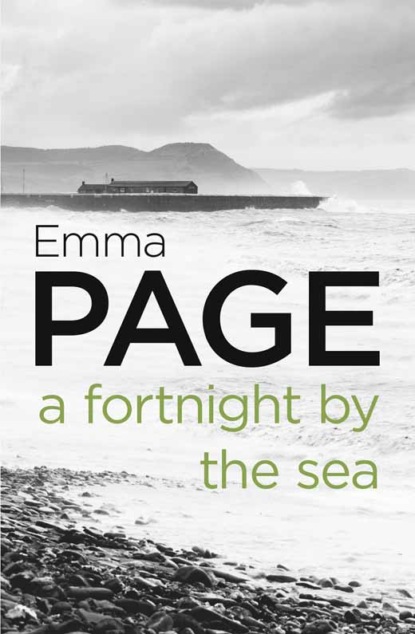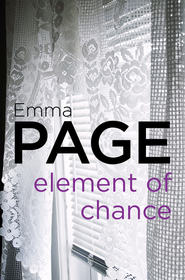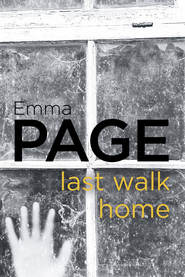По всем вопросам обращайтесь на: info@litportal.ru
(©) 2003-2024.
✖
A Fortnight by the Sea
Автор
Год написания книги
2019
Настройки чтения
Размер шрифта
Высота строк
Поля
‘Come now,’ Godfrey said with mild reproof. ‘Theresa looks after your aunt as devotedly as if she actually were a member of the family.’ He finished his coffee, patted the papers in his breast pocket and glanced at the clock. ‘I won’t take the car, I’ll walk up to the bungalow. Young Nightingale’s looking in at about half past eleven, I’ll have a chat with him after he’s seen your aunt.’
‘You haven’t said yet whether we ought to phone Marion and Stephen.’ Pauline gave him a steady look. Marion was her sister, three years older than Pauline, married to Stephen Lockwood, a business executive. They lived some way off, in Barbridge, an industrial town markedly lacking in charm; it was a considerable time since visits had been exchanged between the two families.
‘You can phone if you think it necessary,’ Godfrey said after a short pause. He was silent again for several seconds. ‘Yes, I suppose you’d better.’
Pauline’s manner grew suddenly brisk. ‘I’ll suggest they stay for a week or two. Stephen might be able to take a little holiday, I’m sure Marion would like to see all the old haunts again.’ Something rather forced about the brightness of her tone. She picked up the coffee cups and placed them neatly on the tray; her eyes didn’t meet Godfrey’s.
‘Will you be able to fit them in all right?’ he asked, a little surprised at the determination in her manner.
‘The boys will be going off to camp in another week.’ She glanced at the photographs on top of the desk. Her sons looked out of the frames with self-conscious smiles, two sturdy boys, tall and fair like Godfrey. They were due home on Tuesday from the school which had been their father’s and their grandfather’s. ‘Their rooms will be free,’ she said. And she always tried to keep one or two bedrooms unbooked for casual holidaymakers looking for overnight accommodation.
‘I very much doubt that Stephen will be able to get away for more than a day or two,’ Godfrey said. ‘And in any case, don’t they always go abroad for their holidays?’
Does he really not want them to come? Pauline asked herself with such a fierce stab of the old jealousy that she raised a hand and pressed it to her side as if the pain had a physical cause. Godfrey had been wildly, passionately in love with Marion; they were never actually engaged but everyone had been certain they would marry. And then Stephen Lockwood had taken it into his head on a sunny, idle Saturday morning to go back to Chilford, to his old school, where they were giving a garden party to launch an appeal fund for the building of a new science block. The Tillard girls had gone to the garden party with their father, an old boy of the school. Marion was then twenty years old, at the height of her beauty; Pauline was seventeen, only just liberated from the classroom, still afflicted by adolescent spots and plumpness. Stephen had been coming out of the refreshment marquee where he had been making himself useful handing round glasses of iced lemonade, he had looked across the emerald lawns and seen the two girls coming towards him. Easy enough to find someone to introduce them; six weeks later he and Marion were engaged, in another couple of months they were married.
‘They went to Malta at Easter,’ Pauline said. She kept up a regular correspondence with Marion, ruled in this as in many other things by the strongly conventional side of her nature which dictated that if you had a sister you wrote to that sister, whatever thoughts and feelings were sternly denied expression on the smooth-surfaced writing-paper. ‘I shouldn’t think they’d want to go abroad again for a holiday so soon.’ For the first ten or eleven years of her marriage Godfrey had held a commission in the Army and at least half of those years had been spent out of England. Pauline had never really taken to the life; she had longed for the English countryside, had wanted to bring her children up in their own land. She had felt no regrets when Godfrey had resigned his commission four years ago on the death of his father. She had returned to England with pleasure and had ever since retained a certain mild prejudice against foreign shores.
‘I’ll phone them this evening.’ She was now absolutely determined to bring Marion face to face with Godfrey. Some compulsion had gathered force inside her during the last year or two; it had reached a stage now where it could no longer be repressed. She would stand in the same room with the two of them, she would look from one face to the other. She must know. ‘And in any case,’ she added with a touch of censoriousness, ‘Marion really ought to pay more attention to Aunt Elinor. I dare say she’ll be left everything – or the best part of it anyway, she’s the eldest.’ Marion had always been Aunt Elinor’s favourite, she had been everyone’s favourite. ‘Not that there’ll be all that much to leave, but still, it doesn’t look good.’ She suddenly caught the tail-end of her own utterance and was taken aback for a moment at the hypocrisy and petty-mindedness showing through.
‘I must go,’ Godfrey said. ‘I don’t want to miss the doctor.’ He walked over to Pauline, slipped an arm briefly round her shoulders and brushed her cheek with his lips. ‘I’ll give Aunt Elinor your love.’
When the door had closed behind him, she crossed the room and stood in front of the screened fireplace, gazing with frowning concentration at her reflection in the oval mirror above the mantelshelf. A faintly-tanned, fine-boned face, blue-grey eyes, delicate brows; but what she saw was the haunting image of her adolescent self, blemished skin, difficult hair. Of course he didn’t love me, she thought with savage certainty. How could he have loved anyone after Marion? And least of all that pathetic, plain schoolgirl. She saw all at once with total clarity why he had married her. He had wanted a son to carry on the name, he couldn’t have Marion so he had made do with Marion’s sister. She felt a searing wave of self-disgust. She’d been so eager to say yes; such an ignorant, blind, foolish creature.
She turned abruptly from the glass and went to the window. Godfrey was walking with an easy pace across the flagged terrace. I’d say yes again, she realized with astonishment; knowing all I know now, with innocence and the first flush of youth behind me for ever, if that starburst instant were to spring into being a second time, if he were to take my hand out there in the garden as he took it before, if he were to ask me again to marry him, I would still say yes.
As he neared the edge of the terrace Godfrey halted and looked back at the house. Pauline instantly moved to the side of the window and continued to watch her husband without fear of being seen herself. She levelled a look of fierce concentration at his calm features. If only she could tell what went on in his mind – but his upbringing hadn’t taught him to express his thoughts openly, and his years in the Army had done nothing to counteract that early and decisive training.
His gaze travelled without haste over the whole frontage of the house, the elegant proportions, long windows, slender columns, mellow stone, glossy-leaved creepers. This place means more to him than anything else on earth, she thought suddenly, there is nothing he wouldn’t do to keep it . . . The notion sprang into her mind with startling force.
The creak and rattle of a wheelbarrow approached from the shrubbery. Godfrey abandoned his survey of the house and permitted his stance to take on a relaxed air.
‘Good morning, sir.’ Edgar Meacham appeared with his barrow through a gap in the lilacs. ‘It looks as if the fine weather’s going to hold.’
Godfrey glanced vaguely up at the soft blue sky delicately ribboned with white. ‘Yes, it would seem so.’ He walked across to where Meacham was stooping over a scatter of lopped boughs. The severed ends were reasonably neat, the depth of cutting back not too severe. He nodded in brisk encouragement. ‘You’re making a pretty fair job of it.’ His gaze rested on the pale green leaves. He scarcely ever looked anyone directly in the eyes; on the chance occasions when he did his glance had a lightly veiled quality.
‘Thank you, sir.’ Meacham gave Godfrey his habitual frank and open look; his voice held both pleasure and relief. His employer’s head turned suddenly and with a distinct suggestion of dismay at the sound of the front door opening, footsteps, voices issuing forth.
‘Ah! Mr Barratt! I was hoping to catch you—’ A large, imposing lady bore down on Godfrey. She was followed by her daughter, a nervous-looking young woman who seemed perpetually to be trying to obliterate herself from the landscape.
Meacham gathered up the wood, flicking a covert glance of amusement at Godfrey’s back as Barratt compelled himself to walk with an air of affability towards the pair of females. Shouldn’t have stopped to talk to me, Meacham said to himself, then he’d have been off down the drive, out of harm’s way, before they’d had a chance to catch sight of him. His sharp eyes had more than once observed Barratt’s little manœuvres to avoid confrontation with his guests, particularly with the bed-and-breakfasters who were the most mixed bag of all.
‘A charming house,’ the large lady said with massive patronage. ‘Such a stroke of luck to come upon it—’ The trouble is, Meacham thought, taking a pair of secateurs from his pocket and snipping a shoot, there isn’t really any type of guest he does genuinely welcome. The pretentious made Barratt squirm, the ill-bred made him shudder, and with civilized folk he was perhaps even less at ease, imagining how they might be pitying – or even despising – him for having to throw open his house in this manner.
He stood now listening to the oration of the majestic lady; his face wore a slight, interested smile. ‘I’m so glad we managed to make you comfortable,’ he said when she paused for breath. If he didn’t protect himself with those good manners, Meacham thought as he looked round for his garden broom, I dare say he’d run the risk of breaking out, letting fly perhaps with a really nasty show of temper, could even go berserk, that type. Meacham had seen a thing or two in his time. Watch out for the disciplined man when the discipline wears thin; he’d learned that lesson the hard way.
‘I do hope you enjoy the rest of your holiday,’ Godfrey said pleasantly, at the same time removing himself by another couple of paces from the two women in order not to have to shake hands at the moment of farewell. He looked down at his watch. ‘I must ask you to excuse me, I have an appointment.’
Meacham swept the débris into a heap, listening with keen interest to the final exchanges, observing with an appreciative movement of his head the skilful way in which Barratt avoided touching either lady by the hand. Not that any man in his senses would want to, Meacham thought as he transferred the heap to the barrow. He sent a shrewdly assessing glance after the two women who were now walking back to the house. Not much joy to be had there, not from either of them. The daughter he might perhaps, at a pinch, have gone as far in the old days as, well, running his eye over her, sizing her up, not likely to have gone any farther than that. But the old girl – he shook his head and allowed a soundless whistle to escape his lips – he’d have known better than to tangle with the likes of her, even for a single moment. Not even in his palmy days. He sent a smiling sigh towards the past. Not even in his prime.
CHAPTER 2 (#ulink_54c830c1-0351-5deb-a72c-81760ea831c9)
Godfrey walked rapidly away down the drive. Only three or four weeks ago he had told himself that he might not have to endure for very much longer the presence in his house of a succession of total strangers. And now – he drew a long appalled breath at the notion – it might be years before he could finally close the door on that motley horde.
He halted for a moment, brought all at once face to face with a thought that had been bobbing about somewhere in the recesses of his brain and now sprang out to confront him with chill reality . . . It is no longer a question of tolerating or not tolerating holidaymakers at Oakfield. If the Official Receiver walks in through the gates of Osmond’s, the unimportant little firm of Barratt’s will slide into bankruptcy a week or two later without the attentions of whirring television cameras or crackling microphones. A couple of paragraphs in the Chilford Gazette, a few lines in the trade section advertising the machinery to be disposed of for what it would fetch. And the forthcoming auctions page displaying a photograph of Oakfield, details and measurements relentlessly listed below.
He came out on to the road and turned right, in the direction of Miss Tillard’s bungalow, away from the centre of the village. The soft air strayed against his cheek, bringing with it the scent of the sea.
It had been Elinor Tillard’s idea in the first place, he remembered suddenly, that they should take paying guests at Oakfield. She had thrown the words half-jokingly into a tea-time conversation not very long after the lawyers had finished winding up old Mr Barratt’s estate. There had been the death duties of course – Godfrey had expected that – but what he hadn’t expected was the leanness of his father’s bank balance and share holdings.
Looking back on it now, he could see that his father simply hadn’t been much of a businessman. In his youth he had followed the family tradition of spending some years in the Army, then he had lived a pleasant enough life in the village where he had been born, withdrawing to some extent from local society after the death of his wife, becoming increasingly absorbed as the years went by in purely private interests and hobbies. He hadn’t been a shrewd investor and time had eroded much of the fair-sized fortune he had inherited.
Not that I seem to be turning out a financial wizard myself, Godfrey thought ruefully. But he couldn’t see, even now, that he had behaved foolishly four years ago when he had decided to sink what remained of his father’s capital in a run-down firm that could with diligence and shrewdness be restored to prosperity.
He’d gone to Tillard and King’s, the Chilford estate agents – his father-in-law, now dead, had been a partner in the firm; he’d listened to their advice, furrowed his brow over the lists of properties and settled at last on this little woodworking business. The owner had been in poor health and had recently suffered a heart attack which had left him with no alternative to retirement. The price was very reasonable and Godfrey had always had a liking for the sounds and smells of workshops littered with curling wood-shavings, ever since his first attempts at carpentry in his schooldays.
The concern had appeared fundamentally sound. Housebuilding looked a very healthy growth industry. He had been confident of success – too confident, he could see that now clearly enough – and he had moved little by little, like many another inexperienced man, into the vulnerable position in which the greater part of his production depended on a single outlet. He let out a groan as he contemplated the extent of his folly.
‘It will take a little time before we’re really on our feet,’ he had said cheerfully over the teacups four years ago.
‘Meanwhile—’ Pauline had said, with a questioning glance that spoke of school fees, domestic help, repairs and rates.
‘Meanwhile,’ Aunt Elinor had echoed smilingly, ‘you could take in summer visitors. You’re only half a mile from a good beach, you’ve plenty of room, it would give Pauline something to think about while the boys are away at school, it would help to pay the expenses of Oakfield.’ Neither of the women had suggested that he should sell Oakfield, perhaps because they were well aware his ears would be closed to the idea. The family solicitor had raised the matter once, without conviction, knowing his man. ‘I am bound to say,’ he had observed, looking blandly into Godfrey’s eyes, ‘that the best advice I can offer you is to put Oakfield on the market and move into a smaller house.’ Godfrey hadn’t troubled to reply. He had merely shaken his head, once, decisively, and that was the end of that.
But Aunt Elinor’s joking remark had lingered in his mind, had imperceptibly turned at length into decision. ‘Only for a year or two,’ he’d said to Pauline, ‘just until we’re on a firmer footing.’ Characteristically he had informed her of his decision without even making a show of consulting her. It wasn’t that he had a bulldozing temperament or harboured outdated theories about women’s place in the scheme of things, he was simply following instinctively the pattern his father had laid down. Godfrey’s mother had died when he was a child, so long ago that he had no memory of her; he had been an only child, more or less brought up by Bessie Forrest – Bessie Meacham as she was now, of course. There had been no one to question his father’s edicts and Godfrey had grown up under the impression, which it had never seriously occurred to him to question, that a household arbitrarily ruled by one man represented a perfectly normal and in no way undesirable state of affairs.
Pauline was seven years younger than her husband. At the time of her marriage she had been overwhelmed by a sense of her astounding good luck, and she had been brought up in a home where the mother was gentle and compliant, the father ruled the roost and there were no sons to challenge this arrangement. The early part of Pauline’s married life had been spent in a military environment in which it seemed quite natural for men to issue orders. If she had ever felt resentment after their return to civilian life, if she had come to wish to be treated as a partner rather than as an uncritical subordinate, she never actually got as far as opening her mouth and saying
Godfrey turned a bend in the road and glanced up at the top of the next rise, to where Miss Tillard’s bungalow stood over on the left with a narrow belt of trees to the rear but unscreened in front, looking out over the wide countryside, down towards the village of Westerhill a mile or so away.
A small green car was parked beside the house. Nightingale’s car. The doctor was standing on the verandah with his bag in his hand, talking to Theresa Onil. It was clear from his stance and the way he was facing that he was just about to go inside. Godfrey slackened his pace. A good ten minutes or more before Nightingale would be ready to leave. A few moments later Theresa turned and led the way indoors.
The bungalow would have looked a good deal more at home under the burning skies of Africa than in its orderly setting in the gentle English landscape. In the early nineteen-fifties the old colonial life on the Gold Coast had ended for ever in a series of changes and upheavals that Miss Tillard had viewed with dislike and apprehension. She was no longer young enough to adapt herself and her professional attitudes to new ways; when she learned of the proposal by which Europeans in her position were to be allowed to opt for an early pension – together with a handsome lump sum – it didn’t take her long to make up her mind to leave the country where she had worked for thirty years.
She had come back to the neighbourhood of Chilford where she had been born and brought up. Her father, a partner in a local firm of estate agents, was now dead, but her brother, of whom she had always been fond, had taken over the half-share in the firm and lived on the outskirts of the town with his wife and two daughters. He had found Elinor a small furnished house in which she and Theresa Onil had lived for the year during which the bungalow had been designed and built to Miss Tillard’s very precise specifications.
She had reconstructed as nearly as possible the dwelling she had occupied for the last fifteen years as headmistress of the African school. The bungalow was raised up on a kind of plinth in a way that made sense in the tropics where any whisper of breeze was welcome. A wide verandah supported by slender pillars ran along the front of the house; even the wicker chairs and tables arranged in casual groups carried a note of that other way of life, remote now, part of the past, already beginning to be fossilized.
Godfrey’s easy pace had brought him to the top of the rise and the gate that led into Miss Tillard’s garden. Flowerbeds filled with brilliant cannas were cut into the smoothly sloping lawn. He paused and looked down towards the village, at the church, the central green, the satellite cluster of buildings, and beyond, near the summit of the gentle incline that rose up at the far side of the village, the clubhouse on the golf-course.
He let himself in through the gate. The bungalow stood at a physical remove from the village, and its occupants were isolated also by the way in which they kept themselves aloof from local contacts. This was partly because Miss Tillard found it very difficult to get about; she kept an unwelcome souvenir of her final days in Africa in the shape of an exceedingly troublesome hip joint. The farewell ceremony had taken place at the school; the leather trunks stood locked in the hall. On the day before she was due to wave goodbye, Miss Tillard took it into her head to enjoy a nostalgic ride in a local bus. She hadn’t done such a thing for a quarter of a century, since the days when she was newly out from England, a young and humble member of staff, without a dignified position to keep up.
The buses were strange, not to say fearsome vehicles, ramshackle to the point where it was astounding that every jolt over the roads didn’t cause them to fly apart. Decorated in garish colours, crammed with passengers, and invariably ornamented with painted signs of a religious nature, at once stoutly optimistic and realistically aware of peril implicit in the next lurch.
Miss Tillard had been accompanied on her fateful excursion by Theresa Onil, then a young woman in her early twenties. She had been enrolled as a pupil at the school not very long after Elinor became headmistress; a couple of years later her mother had died and Theresa had been kept on as a boarder, her fees being paid by Elinor who liked the girl and felt sorry for her. Besides, there was really nowhere else for her to go. She seemed to have no knowledge of any relatives back in her native village, and Miss Tillard knew that a light-skinned child was unlikely to be welcomed by any connections who might be discovered. Inquiries were made through the District Commissioner but no one came forward to claim Theresa.
She had formed an ambition to become a teacher, probably in imitation of her admired Miss Tillard, but she hadn’t managed to pass the examinations. When she was eighteen she had begun to take on a number of unofficial duties which she allotted to herself and discharged with care. By the end of another year or two she was supervising the welfare of the youngest children, occasionally acting as a classroom assistant, helping Miss Tillard with a number of irritating minor tasks and in general making herself useful and agreeable all round.
Elinor had felt a blend of sentimental nostalgia and holiday gaiety as she boarded the bus. Theresa had worn an unsmiling look, considering the expedition both undignified and unwise. On the front of the vehicle a short length of wood hammered into place above the driver’s seat bore the flowing inscription: The Lord Will Lead Me. Beneath it a second piece of wood said simply but alarmingly: To The Cemetery.











